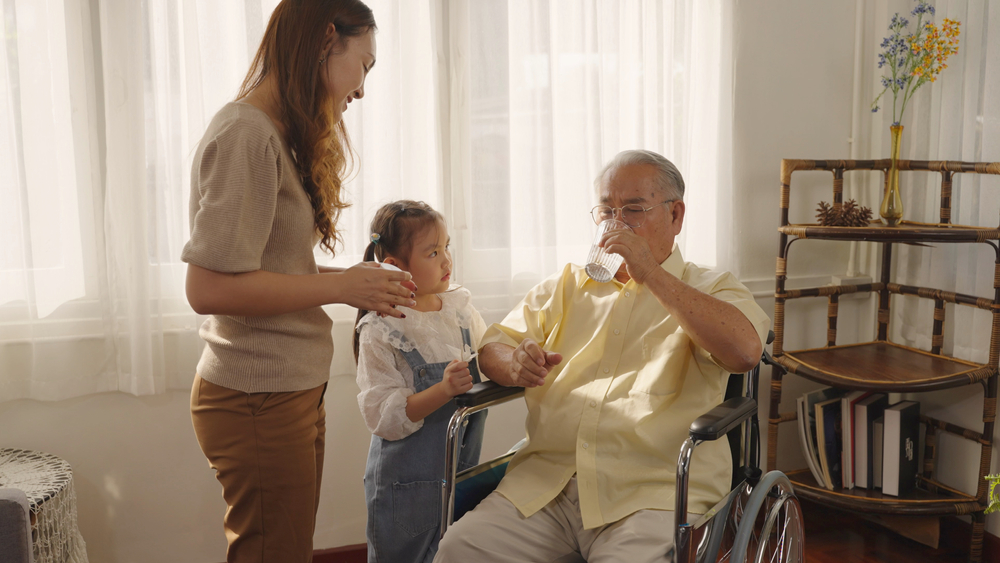

Legal Insight. Trusted Advice.
Latest Newsletter
Becoming a Family Caregiver for an Ailing Loved One
May 10, 2023
Taking on the responsibility of providing full-time care for an aging or disabled loved one can be a rewarding experience. Being a primary caregiver helps you rest assured that your loved one is receiving compassionate care from someone who will go above and beyond to ensure they are comfortable and looked after.
Despite your good intentions to create a comfortable environment for your loved one, full-time caregiving is a significant time commitment. There is also a financial reality that the caregiver must face. Fortunately, family members who want to serve as caregivers may have options to help cover the expense.
What Is a Caregiver, and What Do They Do?
Professional caregivers work intimately with seniors to meet their needs as they age. As individuals get older, their needs change and they may need more help going about their day. Examples of the kinds of help caregivers provide include:
- Bathing and grooming
- Help with toileting
- Medical appointments and medication compliance
- Transportation
- Companionship
- Cooking, cleaning, and grocery shopping
- Care for animals
- Laundry
- Coordinate benefit care/speak to insurance companies on the senior’s behalf, if authorized
Family Caregivers: Know the Downsides
Having a family member serve in the role of caregiver can make for a better experience for your loved one and, in some ways, give you peace of mind as well. However, there are some downsides to be aware of if you are considering becoming a family caregiver.
Your own health, both physical and emotional, can be negatively affected when taking on the burden of caring for a family member. Be sure to engage in self-care, maintain a healthy diet, and watch out for signs of stress and burnout. When you do need a break, consider looking into respite care.
If your loved one has specific medical issues that will require the attention and expertise of a professional health care provider, you may want to reassess whether you should take on the role of family caregiver.
Taking care of a loved one who is getting older or who is disabled will likely require a great deal of your time, too. You may find yourself not performing as well at work or having a longer commute as you fulfill the needs of your ailing loved one. Not to mention that your own immediate family may be missing out on valuable time with you while you are caregiving elsewhere.
In turn, this could mean you will have less time to hold down a full-time job. In fact, a 2020 AARP survey showed that about 20 percent of family caregivers reported experiencing a high level of financial stress. Nearly 30 percent of them stopped saving altogether as a result of providing care for their loved one.
In these challenging economic times, you must be able to support yourself while ensuring the best care for your aging family member.
Can Family Members Get Paid for Their Work as a Caregiver?
Fortunately, certain programs are available to help family members care for ailing relatives. An experienced Elder Law Attorney can help you to find the right option for your circumstances.
Medicaid Self-Directed Care
For individuals on Medicaid, the Medicaid Self-Directed Care Program is one option that gives them the authority to manage their services. In New York State, the program is the Consumer Directed Personal Assistance Program (CDPAP). In New York, CDPAP allows the family caregiver to be paid by the Medicaid program. This option is especially important with the current shortage of home health aids. The Medicaid Self-Directed Care Program lets seniors have more autonomy over their care. Family members, friends, and other individuals are eligible to provide care, however spouses and financial agents may not serve as a personal assistant under CDPAP.
If you are considering becoming the caregiver of an aging or disabled relative, contact the Elder Law attorneys at Kommer Bave & Ciccone LLP. We can help you to plan for their future and their care.
Attorney Advertising


